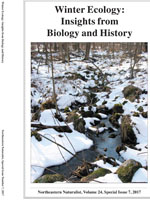This article considers a clash of 2 historic ways of understanding human relations with the environment in James Bay, Canada, which stretches from 52° to 55° north latitude: Cree traditional knowledge and the writings of early 17th-century English explorers. The observations and practices of both Natives and newcomers reflected the enduring power of cold and the particular systems of information that emerged in a region where winter posed myriad threats. These different kinds of historical knowledge survive in different media, one oral and the other written. By considering them together, it becomes clear that the most radical environmental shift in the region occurred not with the signing of the James Bay and Northern Quebec Agreement of 1975, but instead over 300 years earlier. This conclusion suggests reconsideration of the environmental historian Alfred Crosby's notion of “ecological imperialism”, a process understood as the result of the movement of biota, with quick and far-reaching results across temperate zones in the Western Hemisphere (and in select other parts of the Earth). In and around James Bay, the arrival of Europeans—and their recognition that they could survive and extract resources from the region despite the dangers of its winters—initiated long-term environmental changes well before the transference of biota.
How to translate text using browser tools
1 March 2017
Thinking with James Bay: Crees, English, and Cold
Peter C. Mancall
ACCESS THE FULL ARTICLE

Northeastern Naturalist
Vol. 24 • No. sp7
March 2017
Vol. 24 • No. sp7
March 2017




